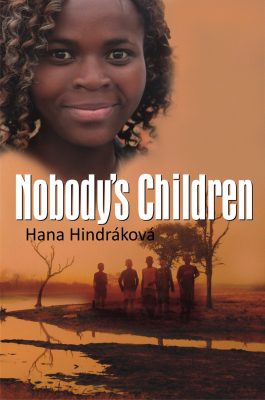© 2015 Hana Hindráková
Review
By
Valda Organ
Kenya is a country of extreme contrasts: a culturally vibrant land always on the brink of social/political tumult. However, to many western people Africa itself is still shrouded in mystique, a sort of wild place that can never be tamed or fully understood by white culture.
Despite extensive media coverage, countries such as Kenya are rarely seen as a society of individuals struggling to cope and survive in an atmosphere that is often an amalgamation of African and western values gone horribly awry. Our ignorance of life outside our own bubble is partly due to our apathy and lack of true interest in life beyond the confines of our own shores and an absence of alternate sources of insight. To seek and share the truth beyond a news broadcast that is at best skewed to report only those stories that focus on unrest, corruption and violence has always been the responsibility of the story teller.
Writers by their very nature are both observers and translators of the events they and others experience. Czech author Hana Hindráková has become adept at both, fictionalizing the truth of poverty within the slums of Kenya. Her newest novel (Nobody’s Children, 2015) explores the suffering and challenges of children born into a world of hunger, government corruption, disease and abuse.
Her task was not easy. To capture the grit and agony of a wretched life within one’s own culture is wrought with many pitfalls for any writer but to attempt to reach into the underbelly of a foreign land is both gutsy and risky. In Nobody’s Children, Hana Hindráková has not only created memorable characters, they are unforgettable. This author’s ability to give birth in print to living, breathing souls is exceptional and each child within this book affected me.
Nobody’s Children is a translation from Czech to English, with the dialogue of each character peppered with culturally accurate Kiswahili expressions. At the beginning of the book the author has inserted a language key to translate phrases. I found this not only unnecessary but also akin to a lack of belief on the part of the writer that they can A. trust their characters to communicate with the reader and B. trust their reader to understand what is being said. Regardless, once immersed in the text, the phrases become second nature to the reader, as the characters are that well developed and the dialogue natural.
The novel itself is written in seven parts covering a time span between 1983 and 2010, which is excessive for a book of only 204 pages of text, clearly an editing issue when the material was being organized. Although the structure of the novel is linear, it is a complicated trek for the reader from point A to point B, as the story is told from the perspectives of several children as they mature but Hana Hindráková finesses what is often complex territory for many writers: multiple points of view.
The stories all eventually become woven together by a series of events that connect the children to one another in the slums of Nairobi and many serious issues rise to the surface for each of them: Aids, rape, abuse, starvation, class exclusion, misogyny, religion and the occult. While the prose is beautiful in places, the writer often veers off course, preferring to rush the story along at the expense of the literature. The result is a diminishing of the character’s inner life, most notably when the story describes and discusses the horrors of female genital mutilation, gang rape and AIDS. There is a superficiality to the writing that is disappointing when the opportunity to explore the trauma experienced by the characters would have enriched this book with a depth and emotional understanding that was ready to blossom into something artistically powerful.
As the characters aged and the years passed, the story lost its initial intensity and strength of purpose. The pacing of the book changed three quarters of the way through the text with an urgency that is the hallmark of a writer who has lost either momentum, interest or direction. The scenarios became progressively unreal and the characters one dimensional, ultimately reading more like a romance novel with a sappy happy ending than a novel; totally unrecognizable from the first half of the book.
Reviewing this story has left me feeling conflicted as a reader because Nobody’s Children is both exceptional and deflating at the same time. There was and still is so much potential here, such is the natural talent of the author. This novel could have been more than a pleasant read; it could have been a wonderful work of literature if the skills of an experienced editor had been engaged.
Despite my partially lacklustre experience, the children in the Nairobi slum remain with me and because of them, I am going to read another of this author’s books. Ms. Hindráková’s has remarkable talent that is as yet not fully realized. As with all writers, she must learn to trust her characters and to follow their lead from the first to the final page or the most important story will remain untold.
You will find Nobody’s Children and more of Hana Hindráková’s novels HERE and HERE
I would like to welcome you on my webpage. My name is Hana Hindráková and I like writing stories. I was born in Trutnov Czech Republic, but I currently live in Strancice near the Sazava river. I like travelling and I spend much of my time in Kenya Africa – my biggest inspiration at this time. My wish is to give you, the readers, joy and hope.



fictionalizing the truth of poverty within the slums of Kenya
A response to Sattar Rind: To "fictionalize the truth of poverty" is to bring that truth out. Readers of fiction gain an enhanced awareness of the truth of a situation by allowing them to practice empathy.